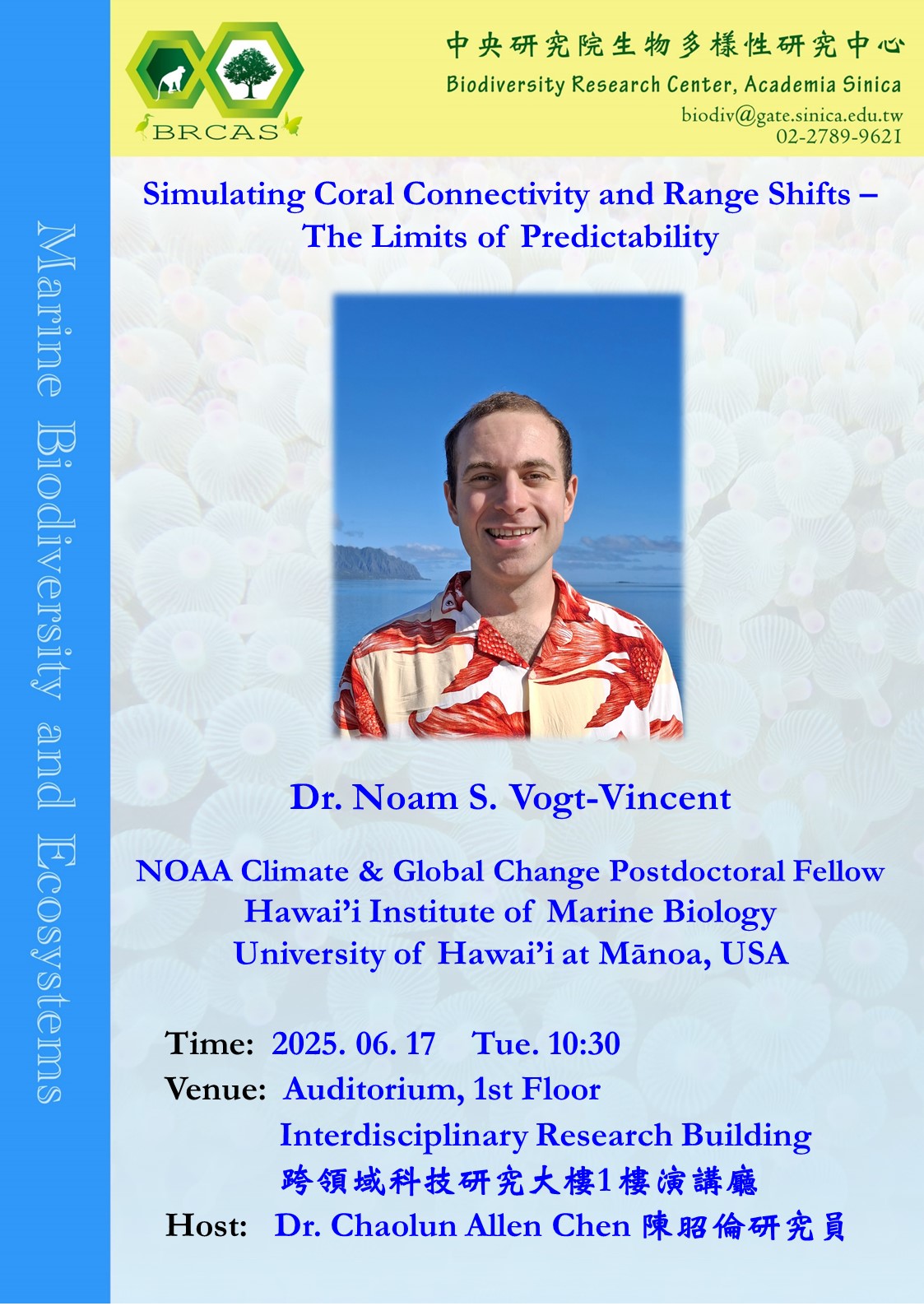- Lectures
- Biodiversity Research Center
- Location
Auditorium, 1st Floor, Interdisciplinary Research Building
- Speaker Name
Dr. Noam S. Vogt-Vincent (University of Hawai’i at Mānoa, USA)
- State
Definitive
- Url
Abstract
Many coral reef taxa (including corals) experience larval dispersal through ocean currents, establishing connectivity between coral reefs. Well-connected reefs may be more resilient to damage and can drive range expansion by sending larvae to new habitats. As our ocean warms, coral reef health in the tropics is expected to decline dramatically. On the other hand, connectivity (in combination with other ecological and evolutionary processes) provides a mechanism by which coral populations can adapt to climate change and expand their range to higher latitudes, potentially buffering coral biodiversity despite declines in the tropics.
Measuring coral connectivity empirically is challenging and expensive, so numerical models are often used to complement field studies. Projecting coral distributions under future climate change is also only possible through models. However, while these computer simulations are powerful, they are also subject to considerable uncertainty, due to the ecological complexity of coral reefs and limited predictability in the ocean-climate system.
In this talk, I will discuss what computer simulations can and cannot tell us about coral connectivity and coral reef futures under climate change. I will argue that turbulence in the ocean – in the form of eddies – fundamentally limits our ability to predict marine connectivity for passively dispersing organisms over ecological, and potentially even evolutionary, timescales. Despite these sources of uncertainty, I will suggest that the timescale for large-scale coral range expansion from the tropics may be of order centuries, which is too slow to buffer coral biodiversity against threats over the coming decades. Higher latitude seas are therefore unlikely to act as effective tropical coral ‘refugia’. While range expansion potential may be limited for most low-latitude corals, eco-evolutionary simulations also suggest that ambitious (but plausible) reductions in greenhouse gas emissions could allow coral reefs to begin recovering in the second half of the 21st century.
~Welcome your participation~









 Home
Home

